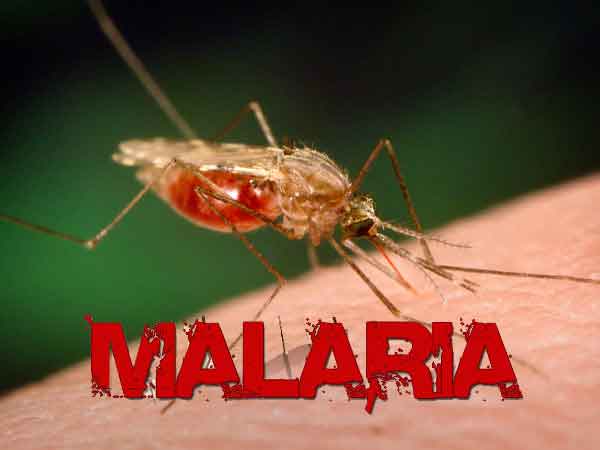
Malaria kills. Mrs Alice Obisesan, a grandmother, recounted how Emmanuel, her 7-year-old son, almost died from malaria.
“It is my worst experience with malaria. His body was very hot, but the limbs were cold; he was very weak; the eyeballs had changed colours, and he was almost unable to work by the next morning when I was taking him to the hospital,” Mrs Obisesan, a traditional birth attendant, recounted.
When Emmanuel arrived at the hospital, his condition was determined to be malaria. Mrs Obsisesan had never seen a case of malaria so severe and wondered why malaria kills.
Mrs Titilayo Adeniran almost lost her first pregnancy to malaria. When her contractions began at seven months, the hospital informed her that her blood contained a significant concentration of malaria parasites.
Following treatment for malaria, her cramps stopped. “I was not experienced because it was my first baby; I would have been a premature baby, and the baby wouldn’t have survived,” she added.
These women were part of an outreach by the Rotary Action Group for Reproductive Maternal and Child Health (RMCH) to mark the World Malaria Celebration in conjunction with the Oyo State Ministry of Health in Ibadan.
The project, tagged “Little Steps—Big Help” aims to tackle malaria and malnutrition among pregnant women and under-5 children in Lagos, Oyo, and Ogun states.
Similarly, Mrs Fatima Adepoju, a pregnant mother of four, also expressed happiness at picking up a free insecticidal-treated net at the outreach that gave out over 100 free mosquito nets to pregnant women and nursing mothers.
“The country’s economic situation is dire; there is no money. So, what does someone gain from having malaria? It is good to sleep inside the mosquito net so as not to have malaria and further complications,” said Mrs Adepoju.
Mr Adedotun Amori, chairman of the “Little Steps-Big Help” project in Oyo State, said the outreach was because of the need to reach out to vulnerable groups, including pregnant women and under-5 children, with mosquito nets and malaria testing and treatment interventions, ensuring equity in malaria interventions.
“Rotary International is using it also to show its support to the Oyo State government in the fight against malaria; it is for the love of humanity as well as mothers and children,” he added.
Malaria remains a huge health challenge in the African region. The region accounted for 94% of global malaria cases and 95% of all malaria deaths in 2022, according to the World Malaria Report 2023.
In Oyo State, malaria prevalence is going down. “In November and December of 2023, there were 8 local government areas (LGAs) with high test positivity for malaria, but by January 2024, it had reduced to 2 LGAs with a high positivity rate for malaria,” said Mrs. Foluke Adeyemo, Oyo State Malaria Officer.
She added, “In February and March 2024, the test positivity rate for malaria is below 45 percent as compared to the same period in 2023, indicating that investments in malaria by the state government are yielding results.”
Oyo State Health Commissioner, Dr Oluwaserimi Ajetunmobi, speaking at the commemoration of 2024 World Malaria Day and mosquito net distribution in Ibadan, said the Oyo State government has ensured that in primary health care facilities, malaria testing and treatment can be assessed by whoever needs them. for free.
“Although Oyo State’s primary healthcare centres offer free malaria testing and treatment, malaria is still a challenge because some mothers are ignorant of the illness and regard fever as commonplace.”
“Many cultural practices and myths surround malaria, such as the fact that they waive it aside and result in akapo, a combination of drugs they buy rather than going to the hospital, and we have quite many people dying from what is preventable and curable.”
Tapping into advancements in medicine, Dr Muideen Olatunji, the executive secretary of the Oyo State Primary Health Care Board, said it can help individuals prevent malaria.
Dr Olatunji added, “Malaria diagnosis can be done by a fast test by the bedside or in the clinic. At times, people think that they have malaria when, in the real sense, it is not so and end up treating the fever wrongly. There is a functioning PHC within a 5-kilometre radius, providing free malaria services to anyone in need of them.
“Individuals were given mosquito netting to sleep beneath. We are reversing malaria in our communities by removing stagnant water and enhancing cleanliness. Malaria will eventually disappear; we can be certain of that.”
Malaria poses a significant risk to pregnant women and children under five years of age. According to Dr Kunle Adedoyin, medical officer of health at Ibadan South West Local Government, “Malaria left untreated can become serious, causing anaemia, convulsions, and dysfunction of the kidney and other organs and affecting a child’s developmental milestone.”
“Mothers should see malaria as a medical challenge. It is impossible to pinpoint the precise cause of the fever without doing testing at the hospital. If it is malaria, early treatment is critical to prevent its possible complications,” he added.
The State Coordinator for USAID-BAN, Mrs. Toyin Afanchang, also urged pregnant women to enroll early in antenatal care to benefit from malaria prevention during pregnancy; children to take all their routine immunisations; and individuals to avoid self-medication and to always finish their course of malaria medicines.
Certainly, as the representative of the World Health Organisation, Dr Philips Azonto, stated, the fight against malaria must be intensified and holistic. It is the responsibility of everyone, including the community and traditional leaders in the community.
ALSO READ: Ogun poly student dies of pregnancy complication
Source: